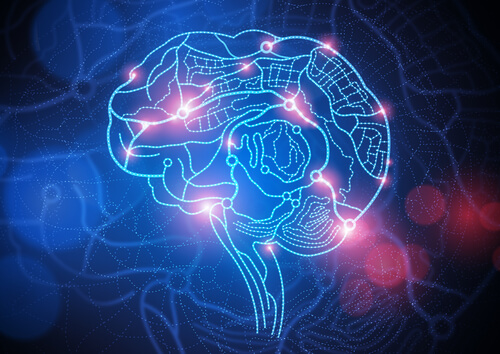Treatment-Resistant Depression


Written and verified by the psychologist Valeria Sabater
Treatment-Resistant Depression (TRD), or treatment-refractory depression, is that which tends not to respond to ordinary medications. People with it try a variety of prescription medications and different kinds of therapy without seeing any improvement. However, experience tells us that they will find a treatment sooner or later that will give them positive results.
This definition still causes a lot of disagreement. According to the NICE guide (National Institute for Health and Care Excellence), it is rather arbitrary to diagnose someone with Treatment-Resistant Depression after trying two types of anti-depressants and not seeing the desired changes.
Organizations like The British Association for Psychopharmacology state that we can apply this diagnosis in cases where the patient has tried different combinations of medication without any change. So far experts have not reached a consensus. What we can say for certain is that almost 30% of patients diagnosed with major depression don’t experience improvement.
In these cases, many professionals feel obligated to re-evaluate their diagnosis. The fact is, sometimes there are underlying disorders that haven’t been identified yet. Let’s take a closer look at this issue.

Treatment-Resistant Depression: when drugs fail
We have to make one thing clear from the get-go: depression is treatable. Whatever the type, depression is multi-faceted, and treatment will be too. Treatment may include medication, psychotherapy, socialization, etc.
Treatment-Resistant depression is the same way. However, in these cases, we need to be consistent and persistent to find the right treatment. Only then will the patient (who is suffering terribly) experience the improvement he needs.
On the other hand, we can’t forget that antidepressants have proven effective. There are some caveats, of course. For example, patients must take the proper dose for a minimum of 6 weeks to see improvement.
However, when there is no improvement and the patient continues to feel bad, it can be devastating. More so when he loses confidence in his doctor and starts to feel skeptical about trying new treatments.
Dealing with Treatment-Resistant Depression isn’t a simple process in any way. Consequently, treating it requires a firm commitment on the part of the patient. Support from the family is also essential.
When treatment isn’t working
When the patient has already tried two types of antidepressants with no success, the first thing the doctor should do before making a treatment plan is the following:
- First, find out if the patient followed through with the treatment (prescribed dose and amount of time).
- Figure out if the patient takes other types of medications (with or without a prescription, including “natural” medications) that could interfere with the drug’s effectiveness.
- Consider other possible health problems, like cardiovascular, neurologic, or hormonal conditions.
- Evaluate whether the patient has the proper diagnosis. Often, the reason that major depression is resistant to treatment is that the patient has other disorders, like bipolar disorder, borderline personality disorder, etc.
Lastly, but no less important, make sure the patient is fully aware of his illness and motivated to make a change. We already know that chemistry is effective and indispensable for treating depression, but we also need a certain level of commitment from the patient to optimize the therapeutic process.

Strategies to help a person with Treatment-Resistant Depression
By now, one thing should be very clear: an individual suffers from Treatment-Resistant depression when he doesn’t respond to treatment with medication. But what about the psychotherapeutic approach?
Isn’t it useful in these cases? There actually aren’t any conclusive studies about this. That is, when a person with major depression doesn’t see improvement with antidepressants, he tends not to benefit from therapy.
Similarly, keep in mind that this type of depression is a serious mood disorder. It requires psychoactive drugs. Then, when these don’t work, health professionals usually do the following:
- Change the dose.
- Switch to another antidepressant.
- Combine different antidepressants.
- Enhance the effectiveness of the antidepressant with other drugs, such as:
- Antipsychotics.
- Lithium.
- Anticonvulsants.
- Triiodothyronine.
- Pindolol.
- Zinc.
- Benzodiazepines.
Two techniques for Treatment-Resistant Depression
Until recently, treatment for TRD sometimes included the always controversial electroconvulsive therapy. Nevertheless, in recent years two interesting therapies came onto the scene. They are:
- Transcranial Magnetic Stimulation (TMS) is a non-invasive and painless stimulation of the cerebral cortex. It interferes with normal brain activity in a controlled way. Thanks to this “neuromodulation,” drugs are more likely to have an effect, and the individual will be more receptive to psychological therapy.
- Stimulation of the vagus nerve. Different studies indicate that stimulation of the vagus nerve can be helpful to treat major depression. The method involves a small electric device that stimulates the nerve, which is in contact with the brain. It helps make the patient calmer and reduces stress, anxiety, and negative thoughts.

What should I do if I suffer from Treatment-Resistant Depression?
- If the treatment doesn’t work immediately, don’t give up.
- Understand that your doctor might need to change your dose, change your medicine, or try to combine different ones. Be patient and trust in your doctor and the process.
- Keep in mind that every case of depression is different. Your doctor has to find the treatment that works best for you, so try to work with her.
- If you take other medications, be sure to let your doctor know.
- Finally, protect your health and try to maintain a healthy lifestyle. Sometimes, a poor diet or an addiction can get in the way of treatment.
Lastly, remember that while our bodies and minds are complex, that doesn’t mean you don’t have the right to feel good. You have the right to be free of your depression. Don’t be afraid to follow the advice of qualified professionals. Eventually, they will find the right combination that will work for you.
Treatment-Resistant Depression (TRD), or treatment-refractory depression, is that which tends not to respond to ordinary medications. People with it try a variety of prescription medications and different kinds of therapy without seeing any improvement. However, experience tells us that they will find a treatment sooner or later that will give them positive results.
This definition still causes a lot of disagreement. According to the NICE guide (National Institute for Health and Care Excellence), it is rather arbitrary to diagnose someone with Treatment-Resistant Depression after trying two types of anti-depressants and not seeing the desired changes.
Organizations like The British Association for Psychopharmacology state that we can apply this diagnosis in cases where the patient has tried different combinations of medication without any change. So far experts have not reached a consensus. What we can say for certain is that almost 30% of patients diagnosed with major depression don’t experience improvement.
In these cases, many professionals feel obligated to re-evaluate their diagnosis. The fact is, sometimes there are underlying disorders that haven’t been identified yet. Let’s take a closer look at this issue.

Treatment-Resistant Depression: when drugs fail
We have to make one thing clear from the get-go: depression is treatable. Whatever the type, depression is multi-faceted, and treatment will be too. Treatment may include medication, psychotherapy, socialization, etc.
Treatment-Resistant depression is the same way. However, in these cases, we need to be consistent and persistent to find the right treatment. Only then will the patient (who is suffering terribly) experience the improvement he needs.
On the other hand, we can’t forget that antidepressants have proven effective. There are some caveats, of course. For example, patients must take the proper dose for a minimum of 6 weeks to see improvement.
However, when there is no improvement and the patient continues to feel bad, it can be devastating. More so when he loses confidence in his doctor and starts to feel skeptical about trying new treatments.
Dealing with Treatment-Resistant Depression isn’t a simple process in any way. Consequently, treating it requires a firm commitment on the part of the patient. Support from the family is also essential.
When treatment isn’t working
When the patient has already tried two types of antidepressants with no success, the first thing the doctor should do before making a treatment plan is the following:
- First, find out if the patient followed through with the treatment (prescribed dose and amount of time).
- Figure out if the patient takes other types of medications (with or without a prescription, including “natural” medications) that could interfere with the drug’s effectiveness.
- Consider other possible health problems, like cardiovascular, neurologic, or hormonal conditions.
- Evaluate whether the patient has the proper diagnosis. Often, the reason that major depression is resistant to treatment is that the patient has other disorders, like bipolar disorder, borderline personality disorder, etc.
Lastly, but no less important, make sure the patient is fully aware of his illness and motivated to make a change. We already know that chemistry is effective and indispensable for treating depression, but we also need a certain level of commitment from the patient to optimize the therapeutic process.

Strategies to help a person with Treatment-Resistant Depression
By now, one thing should be very clear: an individual suffers from Treatment-Resistant depression when he doesn’t respond to treatment with medication. But what about the psychotherapeutic approach?
Isn’t it useful in these cases? There actually aren’t any conclusive studies about this. That is, when a person with major depression doesn’t see improvement with antidepressants, he tends not to benefit from therapy.
Similarly, keep in mind that this type of depression is a serious mood disorder. It requires psychoactive drugs. Then, when these don’t work, health professionals usually do the following:
- Change the dose.
- Switch to another antidepressant.
- Combine different antidepressants.
- Enhance the effectiveness of the antidepressant with other drugs, such as:
- Antipsychotics.
- Lithium.
- Anticonvulsants.
- Triiodothyronine.
- Pindolol.
- Zinc.
- Benzodiazepines.
Two techniques for Treatment-Resistant Depression
Until recently, treatment for TRD sometimes included the always controversial electroconvulsive therapy. Nevertheless, in recent years two interesting therapies came onto the scene. They are:
- Transcranial Magnetic Stimulation (TMS) is a non-invasive and painless stimulation of the cerebral cortex. It interferes with normal brain activity in a controlled way. Thanks to this “neuromodulation,” drugs are more likely to have an effect, and the individual will be more receptive to psychological therapy.
- Stimulation of the vagus nerve. Different studies indicate that stimulation of the vagus nerve can be helpful to treat major depression. The method involves a small electric device that stimulates the nerve, which is in contact with the brain. It helps make the patient calmer and reduces stress, anxiety, and negative thoughts.

What should I do if I suffer from Treatment-Resistant Depression?
- If the treatment doesn’t work immediately, don’t give up.
- Understand that your doctor might need to change your dose, change your medicine, or try to combine different ones. Be patient and trust in your doctor and the process.
- Keep in mind that every case of depression is different. Your doctor has to find the treatment that works best for you, so try to work with her.
- If you take other medications, be sure to let your doctor know.
- Finally, protect your health and try to maintain a healthy lifestyle. Sometimes, a poor diet or an addiction can get in the way of treatment.
Lastly, remember that while our bodies and minds are complex, that doesn’t mean you don’t have the right to feel good. You have the right to be free of your depression. Don’t be afraid to follow the advice of qualified professionals. Eventually, they will find the right combination that will work for you.
All cited sources were thoroughly reviewed by our team to ensure their quality, reliability, currency, and validity. The bibliography of this article was considered reliable and of academic or scientific accuracy.
- Álvarez, E., Baca Baldomero, E., Bousoño, M., Eguiluz, I., Martín, M., Roca, M., & Urretavizcaya, M. (2008). Depresiones resistentes. Actas Españolas de Psiquiatría, 36.
- Dyer, W. W. (2016). Técnicas efectivas de asesoramiento psicológico. DEBOLS! LLO.
- Ruiz, J. S., & Rodríguez, J. M. (2005). Tratamiento farmacológico de la depresión. Revista clinica espanola, 205(5), 233-240.
- Tamayo, J. M., Rosales-Barrera, J. I., Villaseñor-Bayardo, S. J., & Rojas-Malpica, C. (2011). Definición e impacto de las depresiones resistentes/refractarias al tratamiento. Salud mental, 34(3), 247-255.
This text is provided for informational purposes only and does not replace consultation with a professional. If in doubt, consult your specialist.







